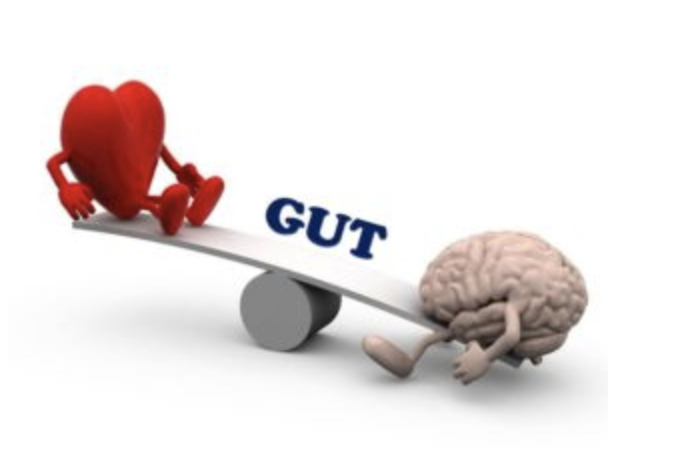Why "Here and Now" Is A Much Sweeter Option Than "There and Later"%
Since Drama Therapy is still in its pioneering phase amidst the timeline of mental health professions, it is not commonly known that one of the pre-requisites for being accepted into a Master’s program for Drama Therapy is to either have an undergraduate degree in Psychology, or one in Theatre. After having worked as a professional in the field for a few years now, I can say without a doubt, that I am incredibly grateful that my background is more heavily rooted in Theatre. I have come to understand that my improvisational skills, and ability to stay in the “here and now” have served me more as a therapist than many of the other skills that I have in my therapeutic arsenal.
Often times, in therapy, you are called upon to look to your past and to recall a memory or an event, and are prompted to access the feelings and emotions associated with said experience. This task is easier said than done for many, but if/when the memory comes racing back, it most likely is affecting your body in the present moment, informing you of the emotions that you were experiencing at the time. This process gives you the capability to process these emotions in hindsight, or in the “here and now,” which creates a healthy sense of safety.
“....Through accessing his spontaneity man has a choice in all matters. The choice he makes is an expression of man’s existential freedom to say yes or no to what life presents.”
Under the Drama Therapy umbrella falls a therapy technique called Psychodrama, which has been proven to be incredibly effective with all populations, and especially with those suffering from PTSD, anxiety, and depression. To simply summarize the technique, it is the process of going back to an unresolved moment in your life, giving you the chance to act out the scene the way in which it actually happened, and then playing it out a second, third or fourth time the way in which you wish it had transpired. In acting out the scene both ways, the protagonist feels a sense of control, and often reports feeling a sense of closure. After accessing the memory, the successful re-playing of the unresolved moment actually re-maps the brain into feeling as though it has received the resolution that the body desires. Perhaps in that moment, you got to hear the apology that you were craving or allowed yourself the space and time to say a proper “good bye” to someone you had lost. The science behind this technique shows how embodying the experience in the present, as opposed to solely talking through the memory, adds a more fulfilling sense of mastery and control, therefore reducing anxiety surrounding the unresolved issue.
In my personal experience with Psychodrama in my training at school, I learned the following: “With the experience of my psychodrama, I feel that I finally have a bodily understanding of what it means to be in the here and now. For me, it is as simple as identifying what is going on in my body at that moment. For example, by saying that I feel emptiness in my stomach and my head hurts, and I have tension in my neck, I can equate those physical sensations to the emotion of anger, and say "I am angry" at this moment. I have feelings and emotions at every moment of every day, but to finally be able to tap into them and express them in a healthy manner is a luxury I never knew I was living without. That is the greatest lesson I learned from Psychodrama in general, and especially my own drama.”
For many, the stories that we create as adults often tie back into behaviors that we learned from our family of origin. In adult relationships, either with friends or lovers, you may find yourself associating with people who remind you of some of the key players in your childhood, which is why, for example, there is some validity behind the statement that some women are drawn to men who resemble their fathers. Often times, in the “here and now” version of your story, you may have the clarity to look into your family of origin, and see how the past may be influencing your current choices and behaviors. The father of Psychodrama, Jacob Moreno suggests that "through accessing his spontaneity man has a choice in all matters. The choice he makes is an expression of man's existential freedom to say yes or no to what life presents."
In taking a moment from the past, and re-living it in the now, you are tapping into that power to create the life experience that you desire. The safety that time and experience creates promotes that feeling of freedom that you might be seeking.
Why promote the “here and now” as opposed to putting things off to the “there and later?” Because you cannot escape your body. From time to time, you can escape the influence of your brain, but your body holds the memories much more accurately than your brain ever will, so you must pay homage to its power. I encourage you in all of your interactions to pay strict attention to what your body is informing you of, and to not gloss over its importance. Authentic communication starts with identifying exactly how your body feels in any moment, and communicating it, not with the intention to change the other person, but solely to promote transparency and understanding of your experience. So, the next time you are “in it” with someone, take a moment to breathe, focus on the sensations in your body, explain what’s going on to other person, and then sit back and allow your brain to catch up. Don’t worry…..the words will be there when you need them.









We are living in divisive times, and we can see this division being played out right before our very eyes. And you know why? Because, no matter the topic, we tend to default to a place of defensive communication, as opposed to leaning into curiosity and feelings.